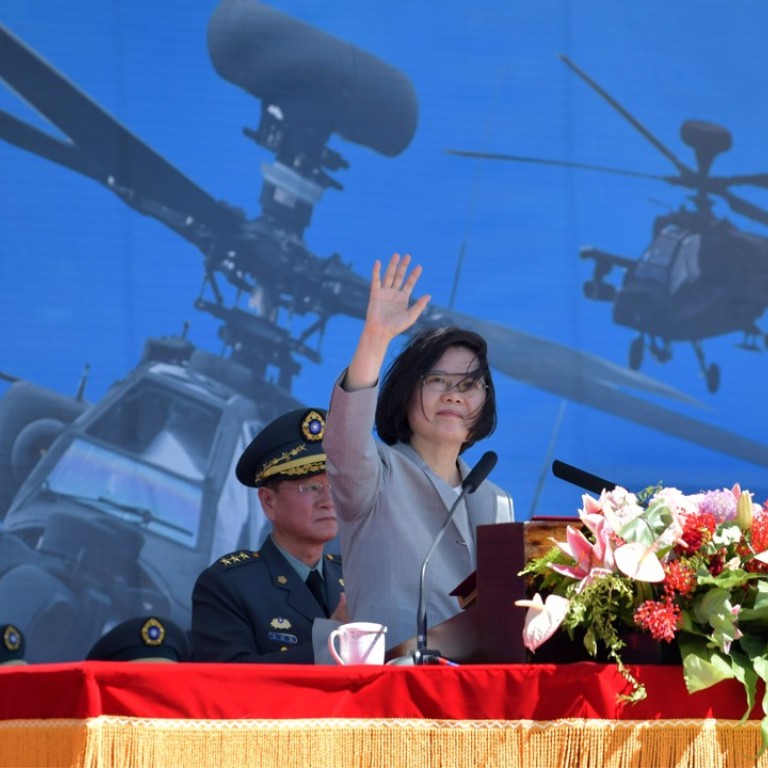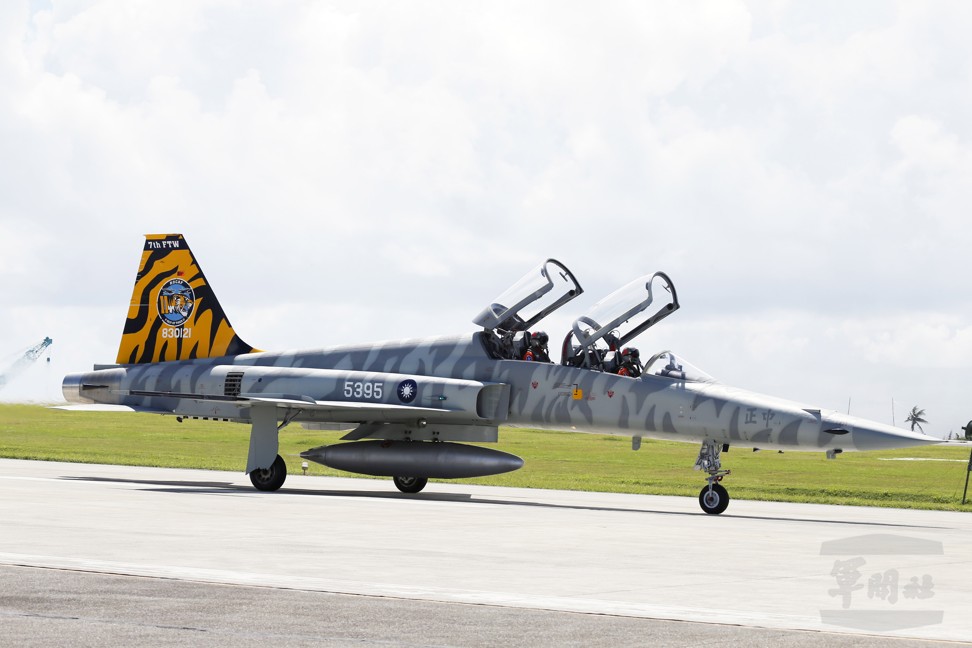
US arms sale won’t do much to help Taiwan defend itself against Beijing, analysts say
But proposed US$330 million deal is seen as another sign of closer ties between Taipei and Washington
Washington’s plan to sell US$330 million of spare parts for Taiwan’s warplanes will not change the cross-strait military situation or improve the self-ruled island’s ability to defend itself against growing threats from Beijing, according to analysts.
But they say that the proposed deal is the latest sign of strengthening US-Taiwan ties and shows that the administration of US President Donald Trump is willing to take further steps to help ensure the island’s security as Beijing expands its military.
It will be the second US weapons deal under Trump, after his administration in June last year agreed to sell a US$1.4 billion arms package to Taiwan that included high-speed anti-radiation missiles, torpedoes, missile components and technical support for early warning radar.

Beijing regards Taiwan as a renegade province that should be reunited with the mainland, by force if necessary. It has previously warned Washington against selling weapons to Taiwan and establishing military relations with the island, and remains locked in a trade war with the US.
Taiwan was quick to express its appreciation for the proposed deal, saying it showed Washington’s concern for the island’s security.
Presidential spokesman Alex Huang said that the sale would “help boost Taiwan’s confidence in facing security challenges” from Beijing.
He also said that Taiwan “will continue to increase our investment in national defence, boost our defence industry and technology development, and closely cooperate and communicate with the US on various security issues and agendas”.
Taiwan scraps plan to send defence minister to US security conference
Analysts said that the new deal was unlikely to alter the military imbalance between the two sides of the Taiwan Strait since it involved mainly aircraft parts and other logistics support.
“Unlike fighter jets like F-35s, this won’t actually represent any significant increase in Taiwan’s defensive capabilities,” said Arthur Ding, an associate research fellow at the Stockholm-based Institute for Security and Development Policy, referring to a more advanced aircraft Taiwan has sought from the US.
“However, these spare parts and the logistics support are necessary to keep the warplanes involved operational,” he said.
Taiwan’s former defence minister Andrew Yang said that the spare parts should be one of continuing arms deals between Taipei and Washington. “It should be part of the regular military exchanges between the two sides,” he said, adding that the purpose of the sale was not to boost Taiwan’s defences.
Tung Li-wen, a professor at the Graduate School of Public Security at Central Police University in Taiwan, said the latest US support could be read as another sign of closer ties between Taipei and Washington and the US institutionalising bilateral military cooperation.
“Although [the proposed sale] doesn’t involve any advanced equipment, its approval by the Pentagon comes less than a year after the US defence department approved a US$1.4 billion deal for Taiwan,” Tung said.
In August, Trump also signed the National Defence Authorisation Act, which has provisions to improve Taiwan’s defences to counter Beijing’s increasing military muscle and to allow high-level military exchanges, including war games.
Taiwan mulls opening citizenship door to Southeast Asia to cope with cross-strait brain drain
Since Trump took office in 2017, his administration has been increasingly wary of Beijing’s military expansion, seeing it as a threat to stability in the region, especially in the contested waters of the South China Sea and in countries focused on by the “Belt and Road Initiative”, China’s global trade and infrastructure strategy.
Tung said he expected Washington would continue to provide advanced weapons to Taiwan in the face of Beijing’s military push.
That push includes using Belt and Road to expand China’s military bases and get access to foreign ports, Randall Schriver, assistant defence secretary for Asian and Pacific security affairs, told the Washington Free Beacon conservative website.
He said that the Pentagon was working with Taipei to improve the island’s air defences to counter growing missile and aircraft threats from Beijing.
Schriver also suggested that the Trump administration was moving to end the practice of selling large, multibillion-dollar arms packages to Taiwan and would instead respond to the island’s requests “as they come in and treat Taiwan like a normal foreign military sales partner”.

